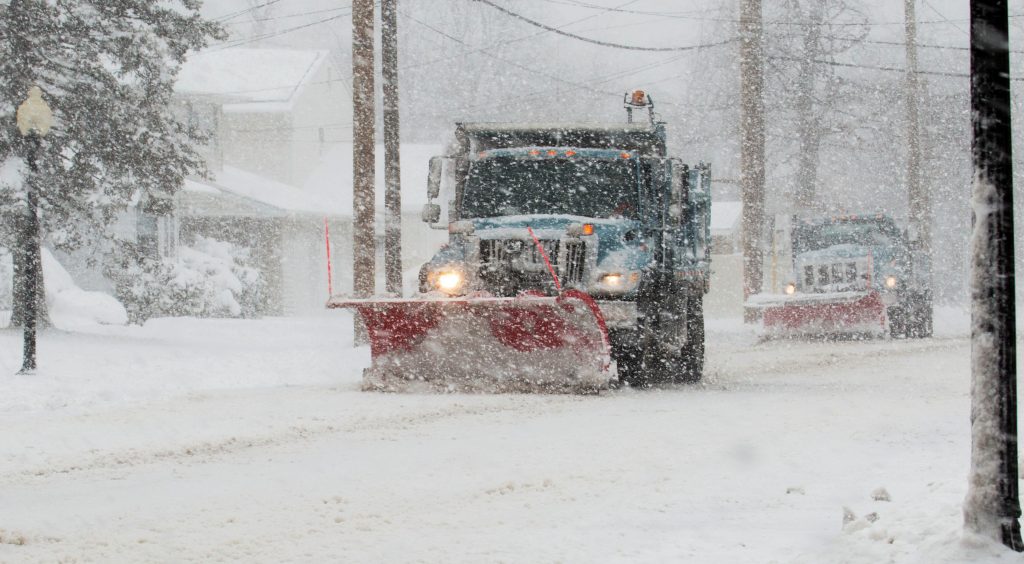
Growing up in Buffalo, NY, I know a thing or two about living through a winter storm. As weather patterns keep changing, we all need to be prepared for the winter storm season. Here’s how to really prepare for a winter storm.
Start In The Fall, Or As Soon As Possible
Preparing in advance for a New England Winter will save you a lot of headaches when the snow starts falling. As soon as the weather starts getting cold, or before late January/early February hits, do the following:
- Get your heating system serviced so you know it is good working order.
- Clean your gutters to avoid ice dams.
- Inspect and clean your chimney.
- Weatherproof your doors and windows.
- Make sure you have fire extinguishers and know how to use them.
- Have your shovels at the ready. Keep WD40 handy to spray the shovel so snow doesn’t stick.
- Purchase rock salt or similar product to use on sidewalks and entryways.
- Check your flashlight supplies. Purchase extra batteries.
- Purchase a weather radio so you can stay up to date on weather conditions if you lose power.
- Inventory your blankets. Do you have enough for everyone in your house if you were to lose power and a way to heat your home?
- Install carbon monoxide detectors if you don’t already have them. Check expiration dates if you do have them installed.
- Investigate cooking alternatives.
- Purchase hand and foot warmers.
- If you are working, check your company’s inclement weather policy.
- Check all internet and remote access connections if you work from home or plan to.
Pre-Winter Vehicle Preparation
Get your car serviced and winterized in late November. Follow your vehicle’s manufacturer-recommended maintenance schedule. Determine if you will need snow tires and if so, have them put on your vehicle. Put a snow shovel, extra windshield wiper fluid, and an ice scraper in your vehicle. Ensure your roadside assistance membership is up to date.
When A Storm is Predicted
Running out to a gas station or grocery store is the last thing you want to do the day before a winter storm. You also don’t want to be working from home and realize you can’t get online because your IT department has changed your remote access protocols. Avoid these problems and more by doing the following as soon as a winter storm is predicted.
- Go to the grocery store first. Get milk, bread, and meals for whatever the duration of the predicted storm is. Do this as soon as the storm is predicted.
- Fill the gas tank of your vehicle. Add extra weight, such as a bag of cat litter or sand, to the trunk, if you have a front wheel drive vehicle to prevent getting stuck on unplowed roads.
- Charge all electronic devices.
- Know where all your emergency items are and make sure you have easy access to them.
- Inventory your water supply. Make sure you have at least 3 gallons of water per person for at least 3-5 days.
- Check your prescription meds to make sure you won’t run out for at least 2 weeks.
- Pick up pet food.
- Make sure you have gasoline for your snowblower and extra shovels if your driveway is too small for a snowblower. If you are unable to clear your own driveway, contact a shovel or plowing service in advance to ensure you don’t get stranded.
- Stock up on flashlights and blankets in the event of a power loss.
- Don’t forget your pets! Pick up extra cat litter, wee wee pads for dogs, and pet food.
When The Snow Starts Falling
Stay safe during a winter storm with the following tips and to dos.
- Let every faucet run ever so slightly to avoid pipes freezing if temperatures dip below freezing.
- Keep your thermostat at the same temp in the night to avoid pipes freezing.
- Use flashlights over candles to avoid fires.
- If you lose power, close doors to unused rooms and wrap pipes in towels to keep them warm.
- Dress in layers if you lose power.
- Have family members bunk up in the same bed to share body heat.
- Use your garage as a refrigerator if you lose power. Use the outside as your freezer. You are less likely to lose food this way.
Winter storms are by far one of the most challenging aspects of life in New England, but with some advanced preparation, you and your family can stay safe and warm during even the worst Old Man Winter has to offer.
Photo Licensed from Adobe Stock.

 Join My Email List
Join My Email List